In a world where the landscape of the construction industry is constantly evolving, the future of Engineering, Procurement, Construction, and Installation (EPCI) projects in Nigeria is being shaped by a combination of technological innovations, sustainability, and shifting economic factors. As we look ahead to 2025, the question every project manager and engineer must ask themselves is, Is your project strategy future-proof? The construction management landscape is undergoing a transformation, one that is driven by cutting-edge technology, progressive sustainability practices, and the need for higher efficiency and quality standards. This article delves into the emerging trends that will define EPCI projects in Nigeria, with an emphasis on how these developments will impact the daily work of engineers on the field.
The construction industry in Nigeria is at a crucial juncture. With the growing demand for infrastructure, particularly in sectors like oil and gas, power, and transportation, engineers must stay ahead of the curve. Emerging technologies such as artificial intelligence (AI), robotics, and blockchain are set to revolutionize how projects are planned, executed, and managed. However, these advances bring with them challenges that require engineers to adopt new skills, rethink traditional approaches, and be open to continuous learning. Whether you’re a seasoned professional with decades of experience or a young engineer just starting out, staying informed about these developments is essential for maintaining competitiveness in an increasingly complex environment.
Technology and Automation: The New Frontier of Construction Management
The Nigerian construction industry is undergoing a transformative shift, propelled by the rapid adoption of technology and automation. With the sector being a significant driver of economic growth and development, staying competitive means embracing digital solutions that streamline operations, reduce costs, and improve overall project delivery. As traditional methods evolve, innovative technologies such as project management software, drones, AI, and machine learning are revolutionizing how data is collected, resources are managed, and projects are executed. In this era of technological advancement, engineers and project managers must harness the potential of automation to optimize construction processes and push the boundaries of what is possible in the industry.
One of the most profound impacts of technology in construction management is the ability to collect and analyze data in real-time, offering insights that were previously impossible or too costly to obtain. Drones, for example, are increasingly being used for site surveys, offering high-resolution aerial imagery that provides detailed views of construction sites. These insights not only improve the accuracy of project planning but also help in monitoring progress and identifying potential issues, such as delays caused by weather or logistics. The ability to gather real-time data allows engineers to make informed decisions on-site, reducing the risk of errors and ensuring that the construction timeline is adhered to.
The integration of AI and machine learning into construction project management is another game-changer. These technologies are increasingly being leveraged for scheduling, budgeting, and risk management. AI algorithms can now analyze vast amounts of historical project data, identifying patterns and trends that can predict future project timelines, costs, and potential delays. This predictive capability is invaluable in a market like Nigeria, where project delays and budget overruns are often caused by unforeseen challenges, such as fluctuations in material costs or supply chain disruptions. By providing accurate predictions, AI helps engineers and project managers mitigate risks before they escalate, ensuring projects stay on track and within budget.
Moreover, machine learning models can continuously adapt and learn from new data, fine-tuning their predictions and improving the accuracy of future forecasts. This creates a feedback loop where project managers gain increasingly precise insights into their projects as they progress, enabling them to make timely adjustments that can save time and money. Automation also plays a crucial role in streamlining routine tasks. For example, repetitive and time-consuming activities like data entry, documentation, and project tracking can now be automated through AI-driven systems, freeing up engineers to focus on more strategic and high-level aspects of their projects.
The automation of these mundane tasks not only boosts productivity but also reduces the risk of human error—one of the leading causes of delays, safety incidents, and cost overruns in construction projects. By minimizing the impact of human mistakes, automation helps to create a safer working environment while ensuring projects are completed more efficiently.
Additionally, the application of robotics in construction, from bricklaying robots to 3D printing technologies, is reshaping how structures are built. Robots can perform repetitive and physically demanding tasks with greater precision and consistency than human workers, which speeds up the construction process while also reducing the likelihood of workplace accidents. The introduction of 3D printing, for example, enables the rapid creation of complex building components with a high degree of accuracy, cutting down both the time and material costs associated with traditional methods.
While these technologies bring undeniable benefits, the success of their implementation hinges on the willingness of engineers, project managers, and stakeholders to embrace change and invest in upskilling. The role of engineers is evolving from merely overseeing construction to leveraging technology to make smarter, more informed decisions. This requires a shift in mindset, as well as investment in training and development programs that equip professionals with the skills to work alongside cutting-edge technologies.
As the Nigerian construction industry continues to embrace technology and automation, it is clear that these innovations are not merely trends—they are the future of construction management. The potential to reduce costs, enhance safety, and improve project outcomes is immense, but it requires forward-thinking professionals who are prepared to harness the power of digital tools. The road ahead is one of constant adaptation, and the companies that will thrive are those that understand the importance of technology in shaping the future of construction.
Sustainability Practices and Green Construction: A New Era for Nigeria’s Engineering Industry
As the world grapples with the urgent realities of climate change and environmental degradation, sustainability has emerged as a defining principle for industries across the globe. The construction sector, notorious for its high environmental impact, has been undergoing a transformation—one that is no longer a choice but a necessity. For Nigeria’s EPCI (Engineering, Procurement, Construction, and Installation) professionals, embracing sustainability in construction is now more critical than ever, particularly as the nation’s infrastructure demands escalate amidst growing urbanization.
In 2025, sustainability will no longer be just a buzzword for Nigerian engineers—it will be a foundational requirement. The growing global demand for energy-efficient buildings and infrastructure has placed sustainability at the forefront of engineering practices, and this paradigm shift is making waves throughout Nigeria’s construction industry. The need to balance economic growth with environmental preservation is now a central concern for engineers, architects, project managers, and industry stakeholders. Whether driven by international environmental agreements or local sustainability goals, the momentum for green construction is unstoppable, and Nigerian engineers must be prepared to lead the way.
At its core, sustainable construction is about reducing the environmental impact of a project at every stage—from initial design through procurement, construction, and the operational phase. This involves making informed choices about materials, methods, and technologies that will minimize resource consumption, energy use, and waste generation. For Nigerian engineers, this means integrating sustainable practices into every aspect of their projects, from the ground up.
The first and most immediate step is the selection of materials. Traditional construction materials, while familiar and widely available, often carry significant environmental costs, from the energy required to manufacture them to their long-term disposal issues. In contrast, sustainable materials such as recycled steel, low-emission concrete, or locally sourced natural resources can drastically reduce the carbon footprint of a building. By choosing materials with lower environmental impacts, engineers contribute to reducing the overall demand for raw materials and minimizing construction waste. In a country like Nigeria, where transportation and logistics can complicate supply chains, opting for locally sourced materials not only benefits the environment but also supports the local economy.
Energy efficiency is another pillar of sustainable construction. Engineers in Nigeria are increasingly adopting energy-efficient technologies and systems to reduce the energy consumption of buildings and infrastructure. This includes integrating renewable energy sources such as solar panels, wind turbines, and geothermal systems into construction designs. Additionally, energy-efficient HVAC systems, LED lighting, and smart building technologies are transforming how buildings are operated and maintained. By reducing energy demands, these solutions lower operational costs while contributing to a reduction in greenhouse gas emissions. The long-term cost savings associated with these investments make energy-efficient buildings an attractive option for clients and developers, especially in an era where operational expenses are under greater scrutiny.
Sustainability also encompasses reducing waste throughout the construction process. Lean construction practices, which focus on minimizing waste and improving efficiency, are increasingly being embraced within Nigeria’s engineering sector. Lean principles aim to eliminate unnecessary steps, streamline workflows, and ensure that resources are used as effectively as possible. This approach not only reduces waste but also improves project timelines and cost-efficiency, making it a win-win for all stakeholders involved. Moreover, the effective management of construction waste, including the recycling of materials and proper disposal of hazardous waste, helps ensure that projects do not contribute to environmental degradation during construction.
Beyond materials, energy, and waste, Nigerian engineers must also consider the long-term environmental impact of their projects. This involves thinking critically about water conservation, emissions during construction, and the ecological footprint of a project. Techniques such as rainwater harvesting, greywater recycling, and the use of water-efficient plumbing fixtures are essential in reducing the strain on local water resources. Furthermore, engineers must take care to preserve the surrounding ecosystem by ensuring that construction sites do not damage local wildlife habitats, wetlands, or watercourses. In rapidly urbanizing areas of Nigeria, where natural resources are already under pressure, these considerations are paramount for ensuring the long-term sustainability of both the project and the environment.
Green building certifications such as LEED (Leadership in Energy and Environmental Design) and EDGE (Excellence in Design for Greater Efficiencies) are increasingly becoming benchmarks for sustainability in construction worldwide. These certifications set rigorous standards for energy efficiency, water usage, waste management, and material sourcing. In Nigeria, the adoption of these standards is on the rise, as developers and clients seek to meet international sustainability goals while improving the resilience and performance of their projects. Engineers and project managers who are familiar with these certifications are better positioned to deliver projects that meet both global and local sustainability expectations. Furthermore, staying abreast of green building certifications ensures that engineers remain competitive in an increasingly environmentally-conscious market.
However, the path to sustainable construction in Nigeria is not without its challenges. Many local engineers face barriers such as limited access to green building materials, higher upfront costs for sustainable technologies, and a lack of training in sustainable practices. To overcome these hurdles, there must be a concerted effort to promote education and collaboration across the sector. Nigerian engineers should seek opportunities for training and certification in sustainable practices, engage with international sustainability networks, and advocate for policy reforms that incentivize green construction.
The importance of sustainability in modern construction cannot be overstated. As Nigeria’s engineering sector continues to grow and evolve, the need to prioritize environmental responsibility will only intensify. By embracing green construction principles—through the careful selection of materials, energy-efficient technologies, lean construction practices, and long-term environmental considerations—Nigerian engineers can contribute to both the local and global sustainability agenda. In doing so, they not only improve the resilience and efficiency of their projects but also safeguard the future of the environment for generations to come.
The Rise of Collaborative Project Delivery Models
As the construction industry in Nigeria continues to grow and evolve, traditional project delivery methods are increasingly proving to be insufficient in managing the rising complexity of modern projects. Factors such as tighter deadlines, higher expectations from stakeholders, and the need for greater efficiency are driving a shift towards more integrated and collaborative approaches. In response, many construction firms in Nigeria are embracing collaborative project delivery models like Integrated Project Delivery (IPD) and Design-Build, which emphasize early collaboration among all project stakeholders. These approaches aim to foster greater innovation, streamline processes, and reduce project risks, ultimately delivering superior results.
In the past, construction projects typically followed a more segmented approach, where architects, engineers, contractors, and owners operated largely in silos, each managing their respective domains. While this traditional model served its purpose for many years, it has become increasingly inadequate in addressing the demands of today’s fast-paced and multifaceted construction environment. As projects grow in size and complexity, stakeholders are realizing that silos only serve to hinder communication and increase inefficiencies, leading to cost overruns, delays, and quality issues.
In contrast, collaborative project delivery models integrate the efforts of all stakeholders from the very beginning of the project. This joint approach fosters an environment of open communication, shared goals, and collective responsibility. One of the most prominent models in use today is Integrated Project Delivery (IPD), which brings together the project owner, design team, and construction team early in the project lifecycle to collaborate on all aspects of the project. This ensures that key decisions are made collectively, based on a deep understanding of the project’s scope, budget, and schedule.
The Design-Build approach is another collaborative model gaining traction in Nigeria. In this model, the design and construction teams are united under a single contract, promoting closer coordination and more effective decision-making. By merging the design and construction phases, the design-build model can reduce the overall project timeline and ensure a smoother transition from design to construction. In this model, communication flows more seamlessly between all parties, reducing the likelihood of conflicts or misunderstandings.
For engineers, the adoption of these models presents both opportunities and challenges. Engineers are required to step outside traditional roles and engage more collaboratively with other professionals, including architects, contractors, and owners. This means that engineers must develop strong communication skills and a higher level of adaptability to work effectively in multidisciplinary teams. Rather than simply executing tasks within the confines of their specialty, engineers are expected to be part of a team that collectively drives the project towards success, with each stakeholder bringing their unique expertise to the table.
The benefits of collaborative project delivery models are considerable. Projects delivered using these approaches typically experience shorter construction timelines, reduced costs, and fewer disputes. By involving all parties in the decision-making process from the start, issues can be identified and addressed early, before they snowball into significant problems. For example, if the design team recognizes potential construction challenges or if the contractors have concerns about the proposed design, these issues can be flagged and resolved in real-time, eliminating costly rework or delays down the line.
The collaborative approach also results in better quality outcomes. When all team members are working together, they are more likely to share ideas, seek innovative solutions, and ensure that the final product meets the highest standards. The transparency fostered by these models further enhances quality, as each stakeholder is committed to delivering the best possible outcome. With everyone aligned toward a common goal, accountability is greater, and the likelihood of project success is significantly improved.
Risk reduction is another major advantage of collaborative models. In traditional project delivery methods, the division of responsibility often creates an environment where stakeholders are more focused on protecting their interests, which can lead to finger-pointing when problems arise. In contrast, the collaborative nature of models like IPD and Design-Build ensures that all parties have a vested interest in the project’s success. When challenges emerge, everyone is more inclined to find solutions together, rather than shifting blame, which ultimately results in fewer risks and greater overall project stability.
As more Nigerian construction firms adopt these innovative delivery models, the demand for skilled professionals capable of navigating this new landscape will continue to rise. Engineers must be prepared to adapt to this more integrated way of working by developing skills in collaboration, negotiation, and problem-solving. The future of construction in Nigeria will be shaped by those who can embrace change, work effectively within interdisciplinary teams, and leverage the power of collaboration to deliver successful projects.
The adoption of collaborative project delivery models marks a significant shift in the construction industry, not only in Nigeria but globally. By bringing all stakeholders together from the outset, these models are improving project efficiency, reducing costs, and enhancing quality. For engineers, embracing these models offers an exciting opportunity to contribute to the future of construction, fostering collaboration, innovation, and better outcomes for all involved.
Blockchain Technology and Its Game-Changing Impact on EPCI Projects in Nigeria
In the rapidly evolving world of construction and engineering, blockchain technology has emerged as a powerful tool with the potential to redefine how EPCI (Engineering, Procurement, Construction, and Installation) projects are managed. While blockchain is more commonly associated with cryptocurrencies, its applications in the construction sector, particularly in Nigeria, are vast and poised to revolutionize the industry. As global digital transformation accelerates, Nigerian engineers and project managers must understand how blockchain can be harnessed to drive efficiency, transparency, and security in large-scale projects.
Blockchain’s primary strength lies in its ability to offer transparent, tamper-proof systems that ensure every transaction, contract, and process is securely recorded in real-time. For EPCI projects in Nigeria—often marked by complexity, high-value transactions, and multiple stakeholders—this is a game-changer. From procurement to payment processing, blockchain technology can improve operational efficiency and reduce the risk of fraud, errors, and disputes that have historically plagued the sector. As the construction industry becomes more reliant on digital solutions, understanding how blockchain works and integrating it into project management workflows will be a key competency for engineers, procurement officers, and stakeholders.
One of the most compelling features of blockchain is its ability to create immutable, secure records of transactions. In the context of EPCI projects, where contracts, financial transactions, and material orders are integral to project success, blockchain provides an unmatched level of accountability. Every action taken—from procurement decisions to payments made—can be tracked, verified, and recorded with a high degree of certainty. This ensures that all stakeholders, from project managers to contractors, have access to the same reliable and transparent data. For Nigerian engineers, where transparency and trust are often issues, blockchain serves as a tool for building confidence and reducing potential conflicts between parties.
In procurement, blockchain’s ability to streamline the process is especially valuable. Traditionally, procurement in the Nigerian construction sector is a process fraught with challenges—delays, miscommunications, and contract disputes are not uncommon. With blockchain, procurement can be made more efficient by providing a real-time, transparent view of the entire supply chain. Suppliers, contractors, and project managers can monitor the status of materials, verify their authenticity, and ensure that they meet the necessary standards without delays. By eliminating manual steps and automating approval workflows, blockchain can significantly reduce the time it takes to secure the necessary resources for a project, keeping projects on schedule and within budget.
The benefits of blockchain also extend to financial management and payment processing. EPCI projects often involve complex payment structures and timelines, with numerous parties requiring payments at various stages of the project. Blockchain simplifies this by allowing for the use of smart contracts—self-executing contracts with predefined conditions that automatically trigger payments when certain criteria are met. This reduces the risk of payment disputes and ensures that funds are distributed accurately and on time, further minimizing the potential for delays or cost overruns.
Moreover, blockchain provides a valuable layer of security and compliance for large-scale projects. Compliance with local regulations and industry standards is a critical concern in Nigerian construction. Blockchain’s immutable records allow all compliance activities—such as inspections, quality control checks, and regulatory approvals—to be tracked in real time. As soon as a step is completed, it is recorded in a secure blockchain ledger, making it impossible for any data to be altered or erased. This not only improves accountability but also simplifies audits and inspections, ensuring that the project complies with both local and international standards. For engineers and project managers, this reduces the time and effort required to monitor compliance and ensures that the project remains on track without unnecessary setbacks.
Blockchain also holds the promise of minimizing risks associated with project delays. Construction delays are often caused by mismanagement, logistical errors, and lack of coordination. Blockchain addresses this by providing an auditable trail of all project activities, making it easier to identify bottlenecks or inefficiencies. By enabling all stakeholders to view and access up-to-date information at any given moment, blockchain ensures that everyone is aligned and can make informed decisions quickly. With blockchain’s ability to provide real-time status updates on every aspect of the project, from procurement to construction milestones, Nigerian engineers can mitigate delays and improve overall project management.
Despite these transformative possibilities, the adoption of blockchain in the Nigerian construction sector faces challenges. The technology is still in its nascent stages within the industry, and widespread understanding and integration into existing workflows will require significant investment in training and infrastructure. Additionally, the technology itself may face scalability issues, particularly in large projects where vast amounts of data must be processed in real-time. However, as blockchain continues to evolve and gain acceptance in other sectors, it is likely that these barriers will diminish over time.
The future of blockchain in Nigerian EPCI projects is promising, and its potential to reshape the industry cannot be ignored. As construction projects become increasingly complex and digitally interconnected, engineers, project managers, and stakeholders must equip themselves with the tools and knowledge to fully leverage blockchain technology. By improving transparency, streamlining processes, and reducing risk, blockchain will help ensure the success of projects, boost confidence in Nigerian engineering, and establish the country as a leader in innovation within the global construction industry.
Adapt or Fall Behind
As we move towards 2025, it is clear that the Nigerian construction industry is on the brink of a major transformation. The adoption of new technologies, sustainable practices, and collaborative project delivery models will define the success of EPCI projects in the years to come. For engineers, this means that continuous learning and adaptability will be crucial. Those who embrace these changes will be well-positioned to lead in the future, while those who resist risk being left behind.
For engineers looking to stay ahead of the curve, joining platforms like epci.ng will provide access to the latest insights, industry news, and cutting-edge technologies that are shaping the future of construction in Nigeria. Whether you’re seeking to deepen your knowledge of project management software, stay up-to-date with sustainability trends, or explore the potential of blockchain, epci.ng is your go-to resource for navigating the evolving landscape of the construction industry.
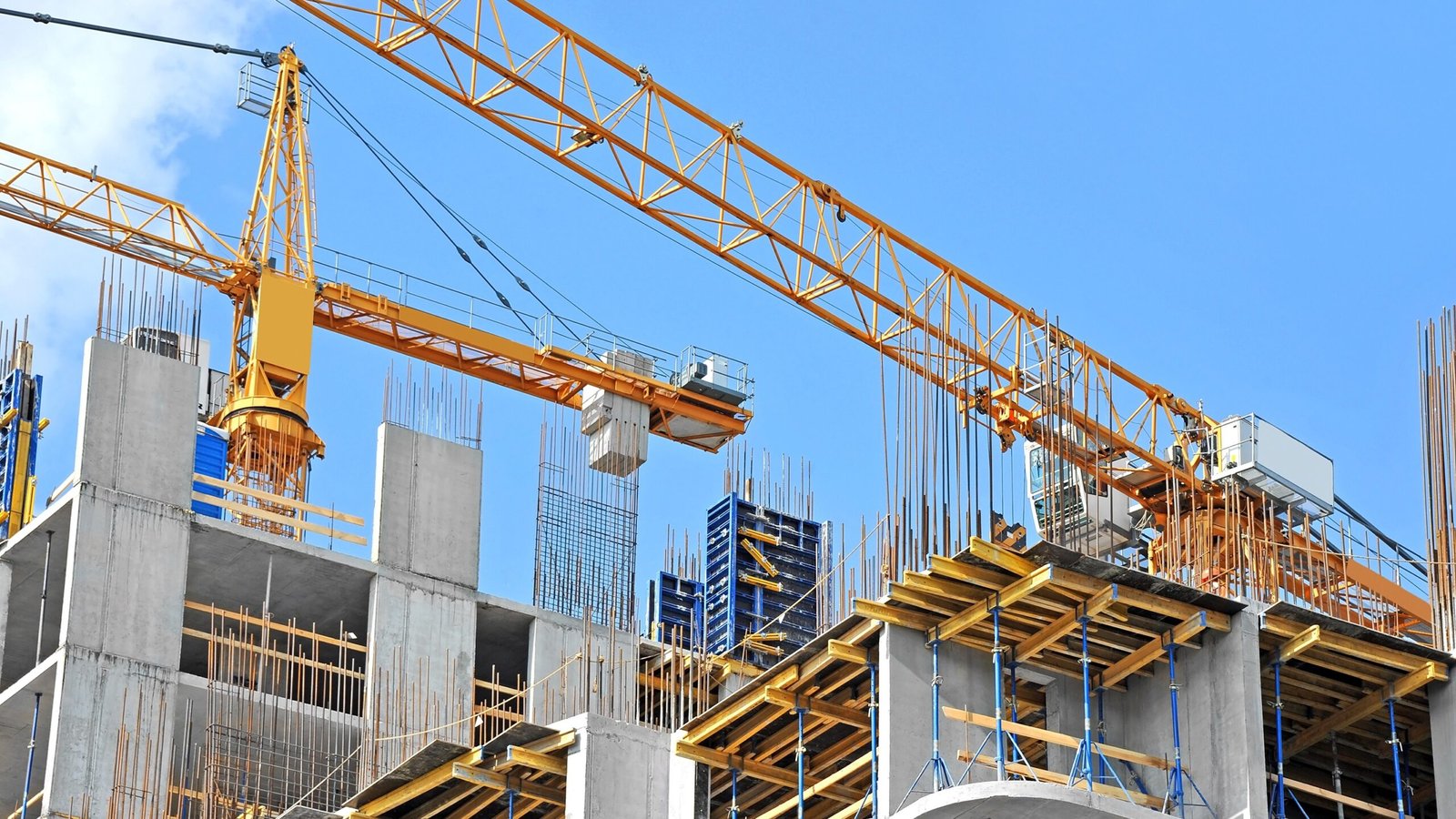

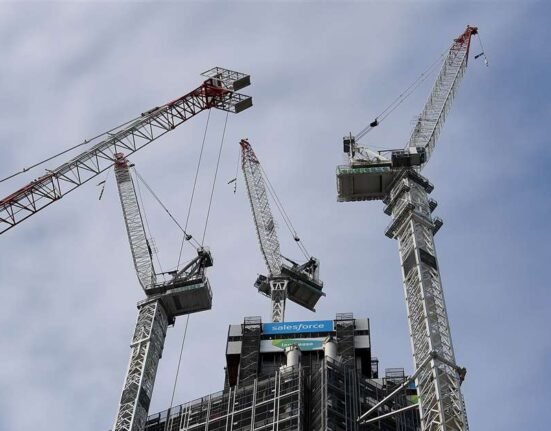

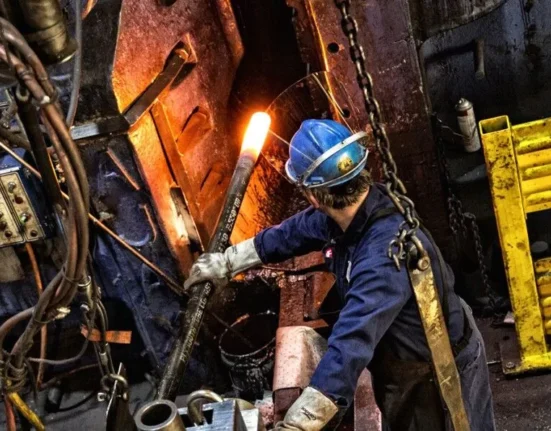
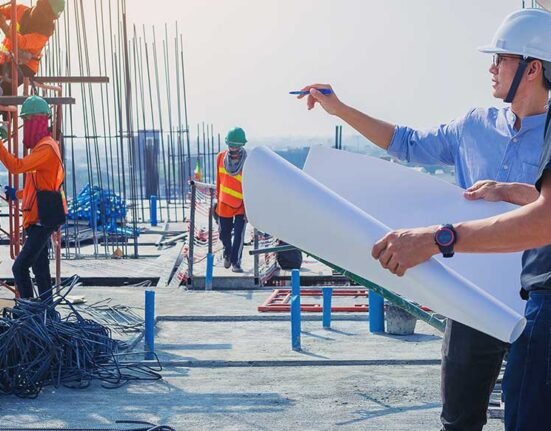
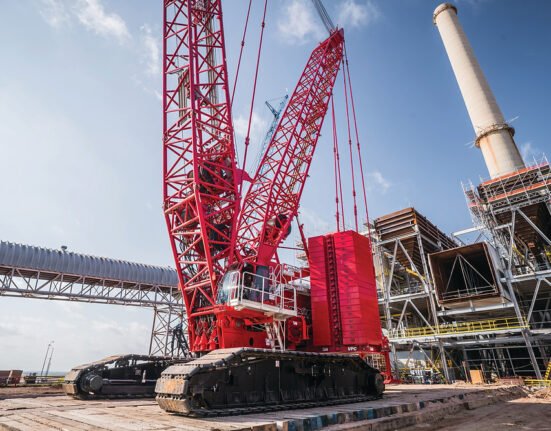
Leave feedback about this